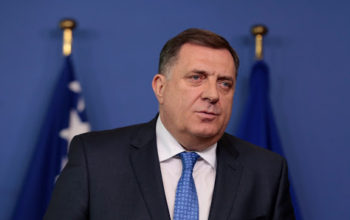Republika Srpska today delivered its 27th Report to the UN Security Council. Below is the report’s introduction and executive summary. Read the full report here.
Republika Srpska’s 26th Report to the UN Security Council
Introduction and Executive Summary
Republika Srpska (RS), a party to the treaties that make up the 1995 Dayton Peace Accords and one of the two autonomous Entities that make up Bosnia and Herzegovina (BiH), is pleased to submit this 27th Report to the UN Security Council.
Part I of this Report emphasizes that the RS is—and will remain—fully committed to the Dayton Accords, which includes a commitment to BiH’s sovereignty, territorial integrity, and constitutional order. Claims by the RS’s opponents that the RS is planning de jure or de facto secession from BiH are false propaganda intended to attract support for the anti-Dayton agenda of centralizing BiH under the sole authority of one ethnicity.
In part I, the RS also insists that members of the international community respect the Dayton Accords and the rule of law. The decentralized BiH structure and ethnic protections through which the Dayton Accords have preserved peace are not in any way inconsistent with European values, as similar examples around Europe demonstrate. The source of dysfunction in BiH is not the Dayton Accords, but the illegal subversion of the Accords, especially by the Office of the High Representative (OHR). It is also unhelpful to BiH that some in the international community fail to respect BiH’s democratic order and the results of its free elections.
Part I of this Report, lastly, explains that BiH cannot succeed until Bosniak political leaders accept the Dayton compromise and the rule of law.
In Part II, the RS emphasizes that there is no threat to the peace that has prevailed in BiH since the Dayton Accords were signed. The RS has consistently and categorically ruled out any resort to violence, insists on resolving BiH’s political disagreements solely through peaceful dialogue. The most knowledgeable foreign officials and diplomats, including EUFOR officials, have made clear that there is no threat of war in BiH. Finally, despite opportunistic efforts by the RS’s opponents to tie the conflict in Ukraine to BiH’s security, one has nothing at all to do with the other.
Part III of this Report lays out the RS’s vision for a way forward for BiH. The RS remains committed to BiH’s path toward EU integration. The RS, moreover, continues to seek good faith dialogue to resolve BiH’s current political crisis. The RS stands ready for such dialogue as soon as its Bosniak partners in BiH’s other Entity, the Federation, are ready. Finally, the RS urges members of the international community to understand that the RS’s moves to resume exercising its own constitutional competences are merely an issue of domestic politics and an effort to address the political dysfunction and provocations from political Sarajevo and the OHR that are the actual source of instability in BiH.
The RS believes that BiH can succeed if all key actors—both foreign and domestic—finally respect and abide by the Dayton Accords.


